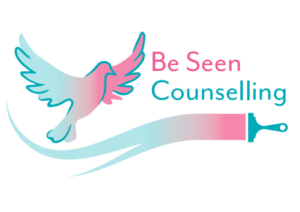As someone who has gone through the devastating experience of intimate partner violence (IPV), I understand how deeply it can affect your sense of self and your ability to trust others, especially in the context of emotional intimacy. After surviving domestic abuse, whether physical, emotional, or psychological, your world can feel shattered. The idea of trusting again—both yourself and a new partner—can feel terrifying. But it’s important to know that healing is possible. In this blog, I want to share my perspective, having walked that difficult path, and offer insight into how one can rebuild trust, re-establish emotional intimacy, and how a supportive partner can play a crucial role in this healing process.

Intimate partner violence doesn’t just leave physical scars—it leaves emotional and psychological wounds that run deep. For survivors, the damage often lies in the way we begin to view ourselves: feelings of shame, guilt, fear, and even self-blame can become internalised. The emotional manipulation that comes with abuse can make you doubt your worth, mistrust your own judgement, and struggle to connect emotionally with others.
I found that, after leaving my abusive relationship, I built a fortress around my heart, designed to protect myself from further hurt. But that same fortress kept me from being emotionally available for new, healthy relationships. The vulnerability that comes with emotional intimacy was the very thing I had learned to fear.
Rebuilding trust in yourself is the foundation of being able to re-engage emotionally with a partner. After abuse, you may feel disconnected from your own feelings, or perhaps even distrustful of your own perceptions, given how gaslighting and manipulation may have distorted your view of reality during the relationship. Healing, then, requires reconnecting with yourself and your emotions.
In my journey, therapy was vital. My therapist helped me recognise the effects of the abuse on my sense of self-worth. Slowly, I began to see that the voice in my head criticising and doubting myself was not mine—it was the remnants of my ex’s manipulation. Through journaling, mindfulness, and therapy, I learned to validate my own feelings again.
One of the hardest lessons was learning that it’s okay to feel vulnerable. Abuse teaches you that vulnerability is dangerous, but in reality, vulnerability is the doorway to authentic emotional intimacy. It takes time, but gradually rebuilding confidence in your own feelings, choices, and boundaries is essential.

For those of us who have experienced domestic violence, new relationships can trigger past fears and traumas, even if the new partner is loving and kind. It’s crucial to communicate your needs openly, although this is easier said than done when emotional intimacy feels risky. A supportive partner, however, can make all the difference.
A new partner needs to understand that healing is not a linear process. They may have to be patient when you withdraw emotionally, or when moments of fear or mistrust arise unexpectedly. The most meaningful thing my partner did for me was simply to listen—without judgement or trying to “fix” me. They gave me space to share my past experiences at my own pace and validated my feelings without pressure. They respected my boundaries, never pushing me to open up or be emotionally intimate when I wasn’t ready.
Partners can support emotional intimacy by:

Trauma doesn’t disappear once you leave an abusive relationship—it can follow you like a shadow, influencing how you react to seemingly small things. Triggers are unpredictable, and for me, simple gestures that reminded me of my abusive ex could send me spiraling into panic. But by understanding these triggers and discussing them with both my therapist and my partner, I was able to manage them better.
Working through past trauma also involves learning how to reframe your own narrative. Instead of seeing yourself as a victim, it’s important to begin seeing yourself as a survivor. It took me a long time to reach this point, but shifting that perspective gave me a sense of empowerment, allowing me to take control of my healing process.
Macy, 42, shares her experience of being in an intimate partner violence relationship for a long time: “In therapy, I found a safe space where I could finally unravel the trauma that had been tightly coiled around my heart for so long and taught me to be brave. My therapist helped me understand that my inability to trust myself wasn’t a personal failing—it was a consequence of the abuse I had endured. Over time, therapy gave me the tools to rebuild that trust, to recognise my worth, and to be vulnerable again. Slowly, the walls I had built around myself came down. Now, I’m learning how to let people in without fear. I acknowledge that there is still a long way to go before I am completely healed.” (pseudonym used)
Tom, 33, shares his experience of supporting his girlfriend, who had survived intimate partner violence: “I never realised just how deeply abuse could affect someone until I met my girlfriend. There were days when she would shut down emotionally, and I had no idea why. Therapy helped me understand her triggers and gave me the patience to approach her healing with empathy. It taught me how to communicate without pressuring her and how to make her feel safe. Our relationship is stronger for it, and I’ve learned so much about what true support looks like.” (pseudonym used)

Rebuilding emotional intimacy after domestic violence is a challenging, yet deeply rewarding journey. It requires patience, self-compassion, and the support of a partner who is willing to understand your trauma. Therapy plays an essential role in healing, helping both survivors and their partners navigate the complexities of trauma, trust, and emotional connection. While the road to healing isn’t easy, every step taken is a victory towards reclaiming your life and opening your heart once again.
If you’re feeling stuck or unsure how to rebuild trust after experiencing trauma, you don’t have to face it alone. I know how hard it can be to take those first steps, and that’s why I’ve created a free guide specifically for survivors of domestic abuse and intimate partner violence.
“Your Guide to Rebuilding Emotional Intimacy After Trauma: How to Heal and Trust Again” is designed to help you:
This guide includes personal insights, actionable steps, and exercises to help you on your journey to healing.
Want your free copy? Simply send me an email at carina@beseencounlling.co.uk with the subject line “Free Guide” and I’ll personally send it over to you.
You’re not alone in this. Healing is possible, and it starts with small steps. Get in touch and let me help you take that first step today.

Hi there, my name is Carina,
I support survivors of domestic violence / Intimate partner violence, to understand and process the emotional and psychological symptoms so that you live your life feeling safe in your own skin, gain peace and joy in everyday moments and trust yourself and others again.
Camberwell
Southwark
London SE5 7HN

©BeSeenCounselling2025
©2025
Be Seen Counselling